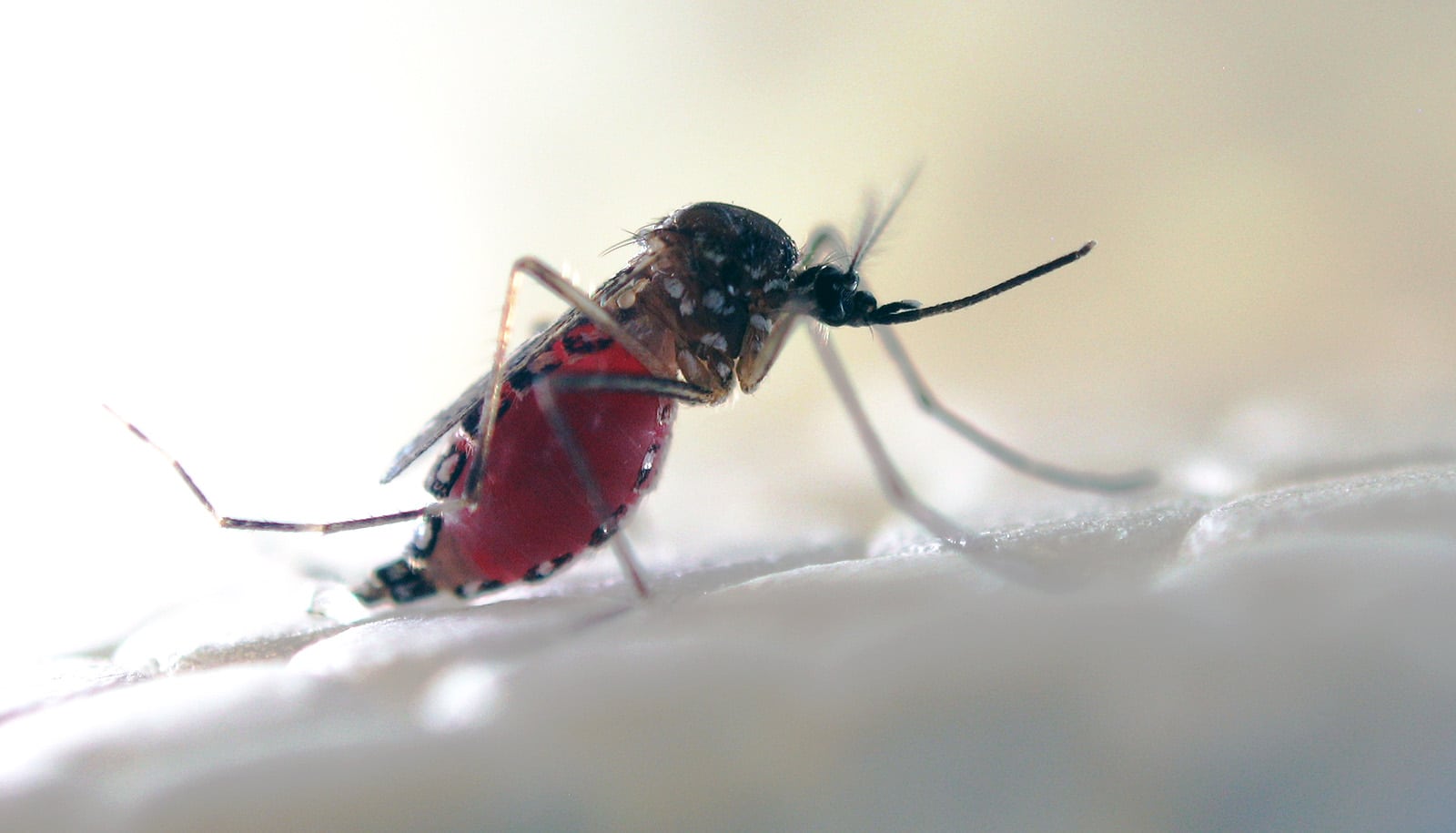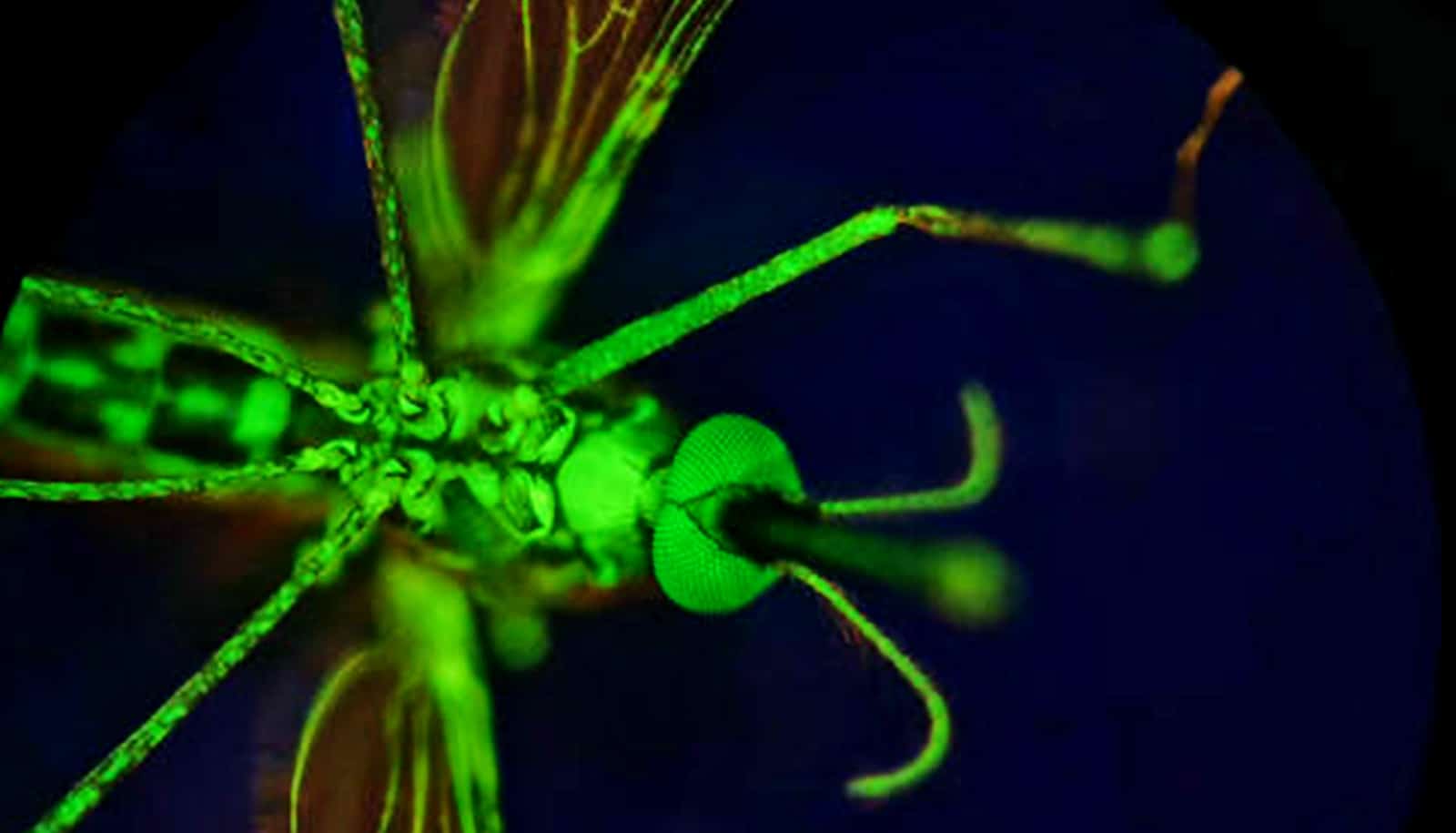Researchers have genetically modified mosquitoes in the lab to resist infection from dengue, a virus that each year sickens an estimated 96 million people globally and kills more than 20,000, mostly children.
The project, summarized in the online journal PLOS Neglected Tropical Diseases, shows it is possible, at least in the lab, to boost the Aedes aegypti mosquito’s natural ability to fight dengue virus. That is a first step toward suppressing the insect’s ability to spread the disease.
The findings could lead to a strategy to eliminate the threat of dengue. Forty percent of the world’s population is at risk from the virus, which is most common in Southeast Asia and the western Pacific and has been on the rise in Latin America and the Caribbean.
“If you can replace a natural population of dengue-transmitting mosquitoes with genetically modified ones that are resistant to virus, you can stop disease transmission,” says study leader George Dimopoulos of the Malaria Research Institute at Johns Hopkins University. “This is a first step toward that goal.”
While the modified mosquitoes significantly suppressed dengue virus infection, they did not resist Zika or chikungunya, two other viruses carried by Aedes aegypti.
“This finding, although disappointing, teaches us something about the mosquito’s immune system and how it deals with different viruses. It will guide us on how to make mosquitoes resistant to multiple types of viruses,” says Dimopoulos, professor of molecular microbiology and immunology at Johns Hopkins’ Bloomberg School of Public Health.
While resistance to one disease is a good start, “ideally, you want a mosquito that is resistant to other viruses as well,” he says.
Mosquitoes are infected by feeding on blood from infected humans. Once the mosquitoes have the virus, they bite healthy humans and pass the disease along. Many efforts are underway to break that cycle; most scientists agree that multiple approaches are needed to eliminate dengue and other mosquito-borne diseases.
Testing it in the field
Normal Aedes aegypti mosquitoes do mount an immune system response when exposed to dengue, but it is too weak to stop transmission. Dimopoulos and colleagues were able to manipulate a component of the immune system, the JAK-STAT pathway, which regulates production of antiviral factors. They did this in the mosquito’s fat body, its version of the liver. The JAK-STAT pathway is involved in antiviral activity in humans as well.
The genetic modification resulted in fewer mosquitoes becoming infected; most that were had very low levels of virus in their salivary glands, the location from which it gets transmitted to humans. These experiments, however, didn’t lower the virus level in all mosquitoes to zero, which puzzled the scientists. More research is needed to understand if this level of virus suppression would be enough to halt disease transmission. They also are working to produce antiviral factors in the gut, which could induce a stronger immune response and possibly confer resistance to other viruses.
The dengue-resistant mosquitoes live as long as normal mosquitoes, though they produce fewer eggs, most likely because the same mechanism involved in dialing up the immune system to fight dengue also plays a role in egg production.
New dengue vaccine is 100% effective in early tests
“It’s likely if we turn this on in the gut we could have a much stronger effect, without compromising egg production,” Dimopoulos says.
A future step will be to test the modified mosquitoes in large field cages to see in very controlled experiments if they can eventually, through interbreeding, supplant a population of wild mosquitoes.
“In this way, you could convert a disease-transmitting mosquito population to one that does not transmit disease,” Dimopoulos says. The process of developing and introducing disease-resistant mosquitoes into the wild could take a decade or more.
Dimopoulos and other researchers are working on similar models in Anopheles mosquitoes that carry the parasite that causes malaria.
The National Institute of Allergy and Infectious Diseases funded the study.
Source: Johns Hopkins University



